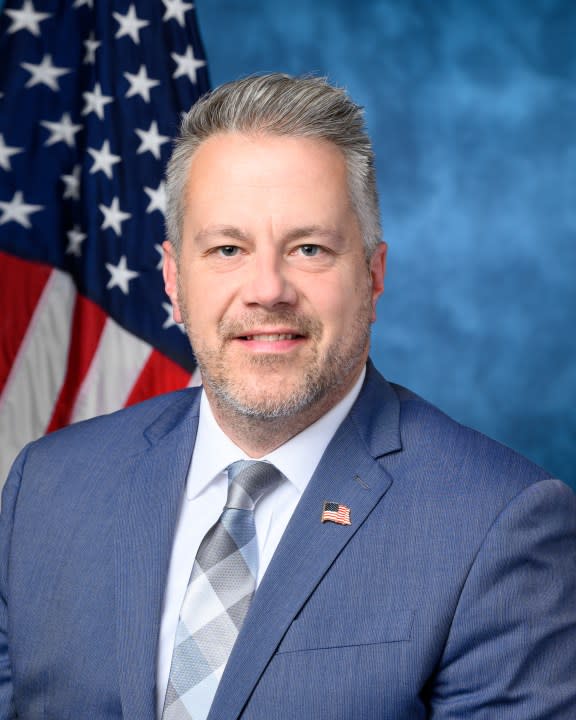Bipartisan bill aims to boost R.I. Arsenal
- Oops!Something went wrong.Please try again later.
- Oops!Something went wrong.Please try again later.
- Oops!Something went wrong.Please try again later.
U.S. Rep. Eric Sorensen (IL-17) along with Congresswoman Mariannette Miller-Meeks (IA-01) and Senators Dick Durbin (D-IL), Chuck Grassley (R-IA), and Tammy Duckworth (D-IL) have introduced the bipartisan Arsenal Workload Sustainment Act which would establish a 50-percent minimum workload requirement at Army arsenals nationwide.

Army depots have a guaranteed workload; however, no workload requirement currently exists for Army arsenals, according to a Wednesday release.
This legislation would provide arsenals with a more predictable, sustained workload throughout the year and allow them to keep costs low while remaining competitive with private industry in the manufacturing or procurement of defense products. The bill would also incentivize private industry to partner with arsenals by giving preference to public-private partnerships in Army contracting.
The bill would have a direct impact on Rock Island Arsenal, helping the arsenal to maintain existing union jobs, attract new projects and workers, and keep costs down.
“The Rock Island Arsenal supports thousands of jobs for our neighbors in the Quad Cities, in addition to playing an important role in keeping our nation safe,” Sorensen said Wednesday. “The Arsenal Workload Sustainment Act will ensure that the Rock Island Arsenal has the tools it needs to attract more work, create more jobs, and help our regional economy grow. I am grateful to Senator Durbin and Congresswoman Miller-Meeks for working with me on this important issue that helps our working families and keeps our communities sustainable for generations to come.”

“The Rock Island Arsenal is a staple of our community in the Quad Cities,” Miller-Meeks said. “Ensuring that they receive a consistent and sustainable workload enhances our national security through supporting our military and supports thousands of high-quality jobs for hard-working men and women around the Quad Cities. I’m proud to team with members of the Iowa and Illinois delegations to introduce this important piece of legislation.”
“Rock Island Arsenal is a crucial asset for both our national security and the economy of the Quad Cities region, outfitted to manufacture the defense articles needed to ensure military preparedness,” Durbin said. “That’s why I’m introducing the Arsenal Workload Sustainment Act with Congressman Sorensen today. This new legislation would support the organic industrial base and ensure that our nation’s arsenals are seeing a workload worthy of their expertise.”
“The Rock Island Arsenal is a pillar of the Quad Cities and our national security industrial base. It must receive the workload necessary in peacetime to ensure readiness in the event of emergency,” Grassley said. “The economic and national security reasons for encouraging investments in our industrial base are many. I’m glad to be teaming up with the bistate congressional delegation on this effort to benefit our constituencies.”
“The Rock Island Arsenal is an economic engine for the entire Quad Cities region and plays an important role in our national security,” Duckworth said.“I’m proud to help introduce the Arsenal Workload Sustainment Act today to help increase public-private partnerships in Army contracting and, in turn, help provide the Arsenal with consistent, reliable levels of work while helping ensure costs remain low.”
Specifically, the Arsenal Workload Sustainment Act would require a 50 percent workload threshold for government-owned and government-operated Army factories and arsenals. This would broadly apply to production that can take place at Army arsenals and factories, leveraging their unique role in the organic industrial base and capabilities such as in additive manufacturing.
The bill would also establish a preference for public-private partnerships that provide a non-public entity a 20 percent preference in the source selection process if it uses a government-owned and government-operated Army arsenal as a partner.
In addition, the bill would require the U.S. Department of Defense to provide relevant congressional communities with an annual report on workload at the arsenals and capital investments to help ensure sustainment of the arsenals.
Read the full text of the bill here.
For the latest news, weather, sports, and streaming video, head to WHBF - OurQuadCities.com.

